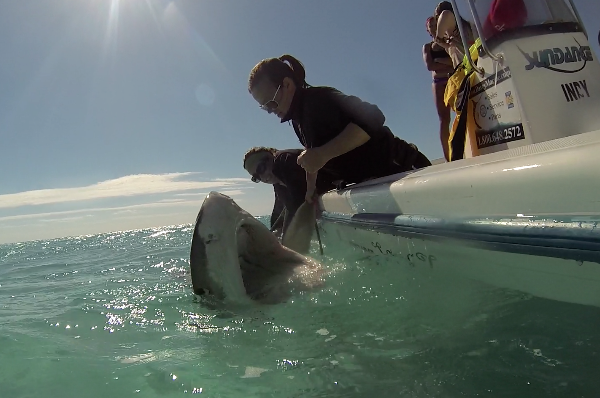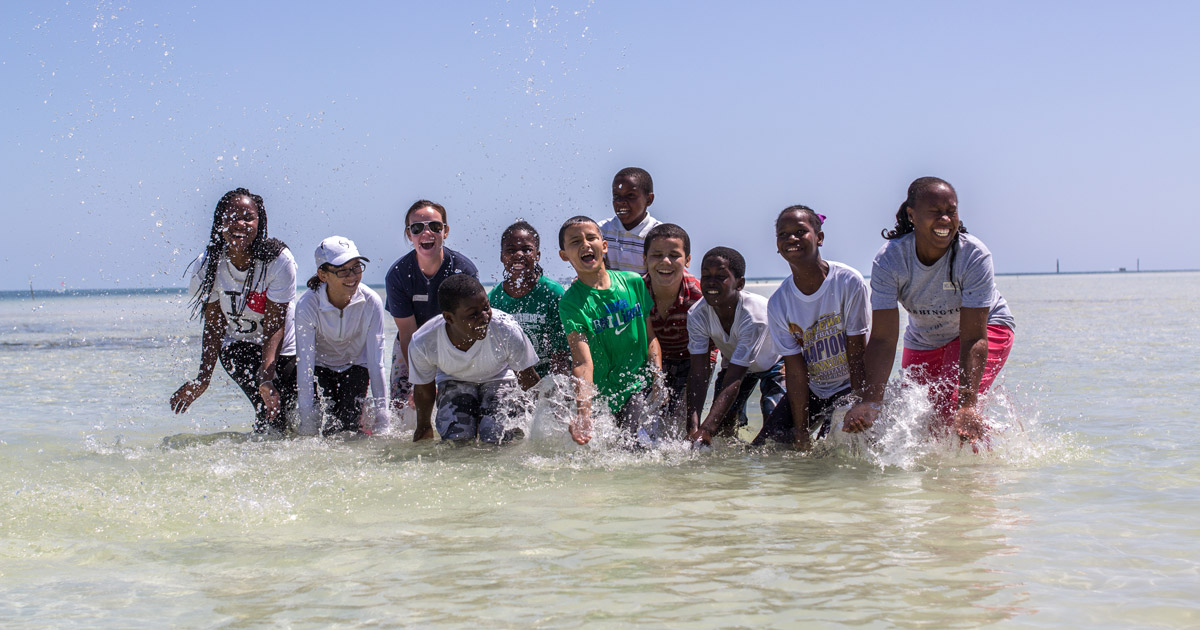Biology PhD Jill Brooks receives shark research and outreach award
Jill Brooks, a PhD student in Biology, has been awarded the Eugenie Clark Memorial Award from the American Elasmobranch Society. The award recognizes female early-career scientists who demonstrate uncommon perseverance, dedication and innovation in biological research and public outreach on elasmobranch fishes, such as sharks, rays, and skates.

“Eugenie Clark was an incredible field biologist and inspiration to many budding scientists interested in studying fish,” said Brooks. “She wasn’t afraid of wrangling wild sharks or of the men dissuading her from her career choice. I am honoured to receive an award for my academic achievements, but more so for the often-unrecognized efforts of communicating science to the world, something Eugenie was so renowned for.”
Brooks, a student in Professor Steven Cooke’s Fish Ecology and Conservation Physiology Laboratory, became interested in shark research while completing a two-month volunteer position at the Bimini Biological Field Station (BBFS) in the Bahamas in 2007. After working in a variety of positions at BBFS, she moved to Canada to pursue her Master’s degree and PhD at Carleton.
Through her varied academic career, Brooks has taught undergraduate Environmental Science students at Carleton as a Contract Instructor, developed and organized activities related to shark science and conservation for schools, and communicated her shark research through magazine articles, blogs, social media, invited talks at museums, online programs, libraries, and university courses, all while conducting important research in the field.

With her colleagues, Brooks has developed the AquaTrax Learning program, a free, bilingual, curriculum-based resource for teachers that brings the movement of wild animals into classrooms across Canada. The program creates interdisciplinary lesson plans for teachers that allows students to track their individual fish, measure migration speeds, areas, and distances, and determine habitat use in townhall-style discussions.
More recently, in collaboration with colleagues at a shark-focused NGO, she has led and secured multiple grants for the first study to assess post-release mortality of great hammerheads in recreational fisheries.

“Jill is an outstanding student,“ said Prof. Cooke. “She has shown great perseverance by juggling research and academic responsibilities with community outreach activities.”
Given periodically since 2015, the award is named after Dr. Eugenie Clark, a ground-breaking shark researcher who passed away the same year. Clark was a pioneer in field and laboratory research on the biology of elasmobranch fishes. She established her long and illustrious career during a time when women were discouraged from becoming research scientists. Always the inquisitive explorer, Clark made her mark in studying the natural history, reproductive biology, and behavior of sharks and other fishes observed in the wild and in captivity. As a university professor, Clark educated thousands of college students in ichthyology and shark biology.